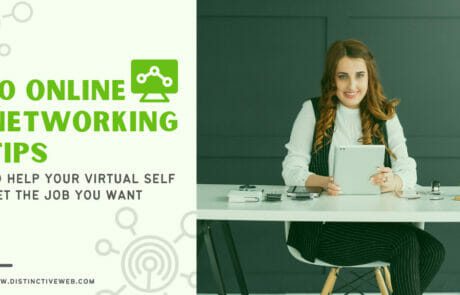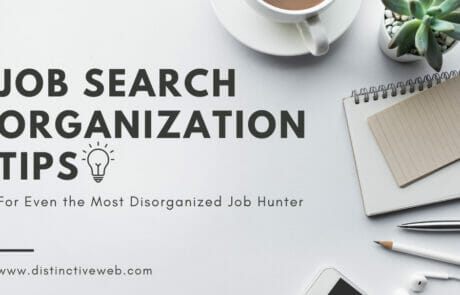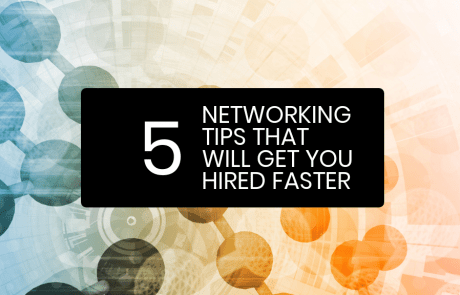
Picture this: You’re standing in a room full of strangers, clutching a drink you don’t really want, and wondering why on earth you thought attending this networking event was a good idea. Your palms are sweaty, your heart is racing, and you’re considering making a beeline for the exit.
Sound familiar? If so, you’re not alone. For many job hunters, the phrase “networking event” strikes fear into their hearts. But what if I told you that these networking events could be the key to unlocking your dream career – and that they don’t have to be painful?
Welcome to your survival guide for navigating the world of professional networking events. Whether you’re an introvert who’d rather hide behind a potted plant or an extrovert who just needs some direction, this guide will transform you from a nervous wallflower into a confident networking pro. So, take a deep breath, straighten that name tag, and let’s dive in – your future self will thank you.
Why Attend Networking Events?
Before we dive into the how-to’s, let’s address the elephant in the room: Do you really have to network in person? In an age of online communication, whether you are seeking to build business connections or career connections, it’s easy to think that virtual networking is enough. However, in-person networking events offer unique benefits that can’t be replicated online:
- 1
Genuine Connections: Face-to-face interactions allow you to build rapport more quickly and effectively than online exchanges. You can pick up on non-verbal cues, share a laugh, and find common ground more easily.
- 2
Immediate Feedback: In-person networking gives you instant feedback on how you’re presenting yourself and your ideas. This can help you refine your approach on the spot.
- 3
Serendipitous Opportunities: Casual conversations at networking events can lead to unexpected opportunities that you might never have discovered online.
- 4
Brand Building: Your personal brand comes alive when people can interact with you in person. It’s your chance to make a lasting impression beyond your online presence.
- 5
Partnership Potential: Meeting people face-to-face can spark ideas for collaboration, professional development opportunities, or business partnerships that might not have occurred in a virtual setting.
Choosing the Right Networking Events
Not all networking events are created equal, and as a job hunter, it’s crucial to choose events that align with your goals and comfort level. Here are some factors to consider:
Single-Track vs. Multi-Track Events
Single-Track Events: These events have one main agenda that all attendees follow. They’re great for building deeper connections as you’ll have more similar interests and shared experiences with other attendees.
Multi-Track Events: These offer multiple simultaneous sessions or speakers. While they provide more diverse content, they can be overwhelming and make it harder to connect with others consistently.
For job hunters, especially those new to networking, single-track events often provide a more manageable and less stressful experience.
Event Size Matters
Small Events: Intimate gatherings like industry meetups or niche conferences offer more opportunities for one-on-one interactions. They’re often ideal for introverts or those who prefer deeper conversations.
Large Events: Bigger conferences or job fairs allow you to meet a wider variety of people but can be more challenging to navigate. They’re great for expanding your network broadly.
Choose an event size that matches your networking goals and personal comfort level.
Industry Relevance
Look for events that are directly related to your field or the industry you’re trying to break into. These will provide the most relevant connections and insights for your job search.
Event Format
Consider the structure of the event. Some formats you might encounter as a job seeker include:
Choose formats that play to your strengths and allow you to showcase your expertise or learn from others in a way that suits your personality and career goals. For instance, if you’re in a creative field, a hackathon might be ideal, while someone in business development might prefer casual mixers or speed networking events
Unexpected Opportunities to Expand Your Network
While structured networking events are valuable, savvy job seekers know that networking opportunities can arise in many unexpected places. Here are some often-overlooked situations where you can expand your professional network:

Preparing for Networking Events
Proper preparation can significantly reduce anxiety and increase your chances of success at networking events. Here’s how to get ready:

Tips for Networking in Informal Settings
- 1
Always Be Prepared: Have a brief, casual version of your elevator pitch ready for unexpected opportunities.
- 2
Show Genuine Interest: Focus on building authentic connections rather than immediately trying to gain something professional from the interaction.
- 3
Follow-up: If you make a promising connection, follow up with a friendly message on LinkedIn or via email.
- 4
Be Helpful: Offer assistance or connections to others without expecting immediate returns. Networking is about building mutually beneficial relationships.
- 5
Stay Open-Minded: You never know where a great connection might come from, so approach various social situations with an open attitude.
Remember, the key to successful networking in these informal settings is authenticity. You’re not at a formal networking event, so let conversations flow naturally.
If a professional connection emerges, great! If not, you’ve still had the opportunity to practice your social skills and potentially make a new friend.
Making the Most of the Event
Once you’re at the networking event, it’s time to put your preparation into action. Here are strategies to help you navigate the event effectively:

Overcoming Social Anxiety
For many job hunters, especially introverts, networking events can be anxiety-inducing. Here are some strategies to help you feel more comfortable:
Remember, many people feel nervous at networking events. Chances are, others will appreciate your effort to connect.
Following Up After the Event
The networking doesn’t stop when the event ends. Proper follow-up is crucial for turning those initial connections into valuable professional relationships:
Your Networking Adventure Awaits: Embracing the Journey
As we wrap up this survival guide, let’s take a moment to appreciate how far you’ve come. From understanding the value of both formal and informal networking opportunities to mastering the art of meaningful conversations, you’ve equipped yourself with a powerful set of tools for your job-hunting journey.
Remember, becoming a networking pro isn’t about transforming into an extrovert overnight or memorizing a script. It’s about embracing your authentic self and gradually building connections that can shape your career in unexpected and exciting ways.
Each interaction, whether at a structured event or a casual barbecue, is a chance to learn, grow, and potentially uncover your next career opportunity. The skills you’re developing – active listening, genuine curiosity, and the ability to articulate your value – will serve you well beyond your current job search.
As you step out into the networking world, armed with your new knowledge and strategies, keep this in mind: everyone you meet has a unique story and potential to offer. Your task is to listen, connect, and contribute your own chapter to the ongoing narrative of your professional community.
So, whether you’re heading to your first industry conference or simply striking up a conversation with a neighbor, remember that you’re not just looking for a job – you’re building a network that will support and enrich your entire career.
Now, go forth and network with confidence. Your future self will thank you for the connections you make today. Who knows? Your next conversation could be the one that changes everything.
Ready to Supercharge Your Networking Strategy?
Feeling overwhelmed by the prospect of updating your resume, optimizing your LinkedIn profile, and creating effective networking documents? Don’t worry – you don’t have to go it alone. At Distinctive Career Services, we specialize in helping job seekers like you put their best foot forward in the competitive world of professional networking.
Our expert team can assist you in crafting a compelling resume, a powerful LinkedIn profile, an engaging professional biography, and impactful networking cards. We’ll ensure that all your career documents are not just up-to-date but strategically aligned to make a lasting impression at your next networking event.
Don’t let outdated or subpar career documents hold you back from making meaningful connections. Reach out to Distinctive Career Services today, and let’s work together to unlock your networking potential. Your next career opportunity could be just one conversation away – make sure you’re fully prepared for it!
Contact us now to learn more and take the first step towards networking success.








